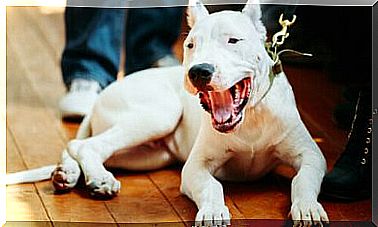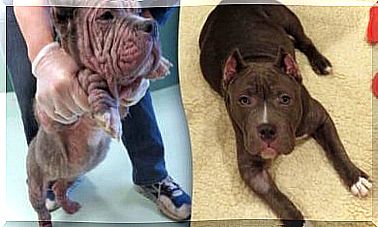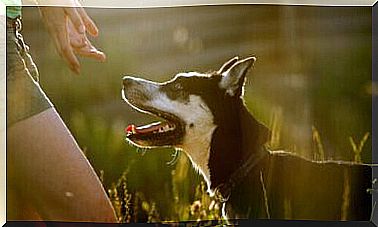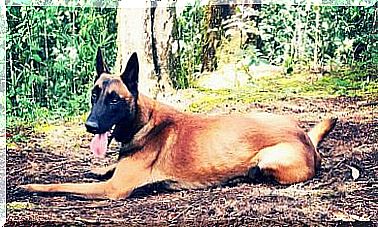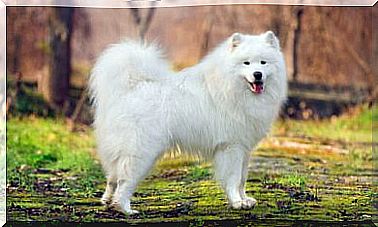Signs That Your Dog Is Getting Older
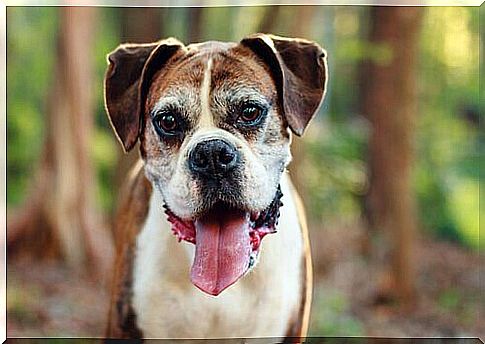
In general, veterinarians establish that a dog is aging after the age of seven. Learn more here!
As our pets age, they are at a greater risk of developing disease.
Therefore, s aber if our dog is aging is essential for preventive treatment and care of health.
How do I know if my dog is getting old?
As with people, age does not apply to all dogs equally. It depends on your size, your race and many other variables.
Veterinarians generally expect dogs to become older by age seven.
However, this should not be generalized. There are many dogs at this age or even older that are still far from aging.
However, although they are still young, from that age onwards it is necessary to undergo more frequent medical examinations.
Large dogs generally age faster than small dogs. So, while for a German Shepherd to live 13 years is an achievement, it is common for Yorkies.
But to know for sure when your dog is getting older, it’s best to watch him. We will give you some tips to understand the stage change in your life.
However, who knows the dogs best is who lives with them.
1. Less energy
The first change that is noticeable in an aging dog is the change in its energy level.
He no longer has the explosive, relentless vitality he had a few years ago. Although dogs have always liked to sleep, naps are now longer and they prefer quieter activities.
Some even refuse to chase a ball and the games with other dogs are slower and with less physical contact.
As with so many other animals as they get older, they don’t like adrenaline and speed. Thus, they start to enjoy more relaxing games and slower rides.
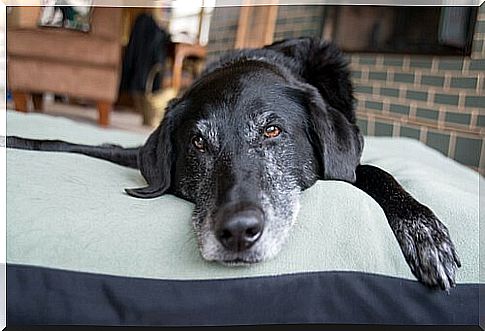
2. Changes in mood
When your dog is getting older, he can experience changes in his mood, although they can be very different depending on the case.
That is, some dogs become even more patient. Puppies and young children are more tolerated, and dogs generally handle things much more calmly than they used to.
However, there are others who become a little more grumpy. They no longer want to put up with loud noises or stressful situations.
However, this can also be a symptom of pain. If your dog’s personality changes in this way, see a veterinarian to find out what’s bothering him.
3. Behavior of other dogs
When a dog is getting older, it doesn’t change on its own. The behavior of other animals also changes, including the relationships they maintain.
Dogs understand each other in a way that humans can only imagine. The other dogs that live together know when your friend is getting older and what he needs.

So if friends at the park change the way they play with him, insist on interacting less, or if you notice he’s more out of place, these could be other signs that your dog is getting older.
One exception is puppies: younger dogs are often attracted to older ones.
Whenever your dog allows, puppies will try to play with him or observe him from a distance.
4. Changes in hair and gray hair
You can also see physical changes when a dog is getting older. One of the most obvious is the change in fur.
He may have gray hair, drier and less shiny. Also, they can be lighter in color than usual.
In some cases, the hair grows less in certain areas, is rough or even bald. It is common for young dogs to have gray hair, especially on the back and around the mouth.
However, as they get older, that gray hair also wraps around their eyes and ears. Some dogs can turn completely white.
5. Diseases
As with people, when your dog is getting older, he is more likely to develop many types of illnesses.
The most frequent ones have to do with the eyes, with the joints, with the bones and with the metabolism.
Weight can also change. He may start to lose weight or gain weight even if he follows his usual diet.
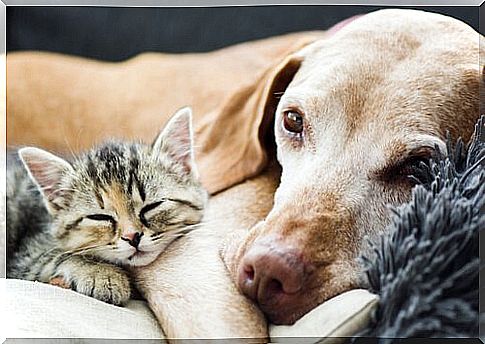
Let’s not forget that there are many other different diseases that can affect older dogs that we may not notice.
They may suffer from disorientation, deafness, skin problems or allergies, digestive problems, etc.
If your dog starts to accumulate medicine and visits to the vet, this is another sign that he is getting older.
The importance of medical controls
That’s why it’s so important that from the age of seven all dogs have more and more frequent veterinary checks.
Only qualified medical personnel can detect changes in health that a dog may be suffering, whether adult or young, and propose treatments to prevent or alleviate them before they affect their quality of life.
